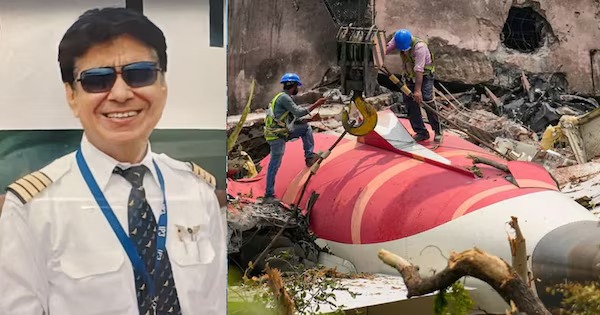The father of Captain Sumeet Sabharwal, pilot of the ill-fated Air India AI 171 flight that crashed in Ahmedabad, has petitioned the Indian Supreme Court for an independent, judicially monitored investigation panel. The move follows concerns over the official probe’s transparency and allegations of premature blame on pilot error.
Father of Late Air India Captain Demands Independent Probe in Supreme Court
Pushkaraj Sabharwal, father of Captain Sumeet Sabharwal—the pilot of the Air India Flight AI 171 that tragically crashed near Ahmedabad in June 2025, killing 260 people—has filed a writ petition in the Supreme Court seeking an independent investigation into the crash. The petition requests formation of a judicially overseen inquiry panel headed by a retired Supreme Court judge and aviation experts.
The official preliminary report by the Aircraft Accident Investigation Bureau (AAIB) placed primary responsibility on human error by the cockpit crew, citing that the fuel control switches were turned off shortly after takeoff. This finding has drawn ire from Sabharwal’s family and pilot bodies, who argue the investigation has been skewed with selective leaks damaging the captain’s reputation and lacking thorough technical scrutiny.
The Federation of Indian Pilots (FIP) supports this petition, demanding a court-monitored investigation with power to summon manufacturers like Boeing and General Electric for documents and testimony—powers lacking in the ongoing AAIB probe.
Key Highlights
Petition Filed: The 91-year-old father, along with the FIP, seeks a judicial panel for transparent and credible investigation.
Criticism of AAIB: The current official probe is criticized for biased handling and premature fixation on alleged pilot error.
Selective Leaks: Partial release of cockpit voice recorder details led to damaging speculation about Captain Sabharwal’s mental state and motives.
Judicial Panel Demand: Calls for a retired SC judge to lead the inquiry, supported by aeronautical, engineering, and pilot representatives.
Public Confidence: The pilots’ body warns the existing probe’s flaws erode confidence in India’s aviation safety and international compliance.
Major Takeaways
This petition emphasizes the demand for fairness and thoroughness to preserve the honor of Captain Sabharwal and ensure accountability beyond simplistic human error narratives. It also reflects broader concerns about investigative independence and procedural transparency in high-profile aviation disasters.
The Supreme Court’s decision on the petition will shape the trajectory of the investigation and possibly set new standards for future aviation accident inquiries in India. The case highlights the sensitivity and complexity involved in balancing technical facts with reputational justice.
Sources: The New Indian Express, Reuters, Hindustan Times, Federation of Indian Pilots (FIP), Supreme Court filings.

